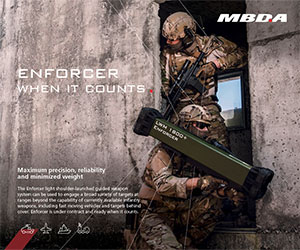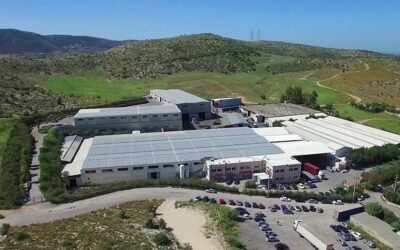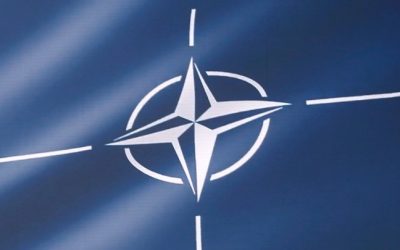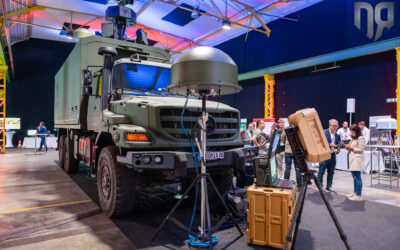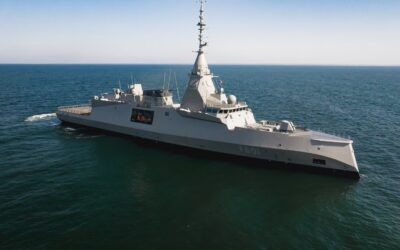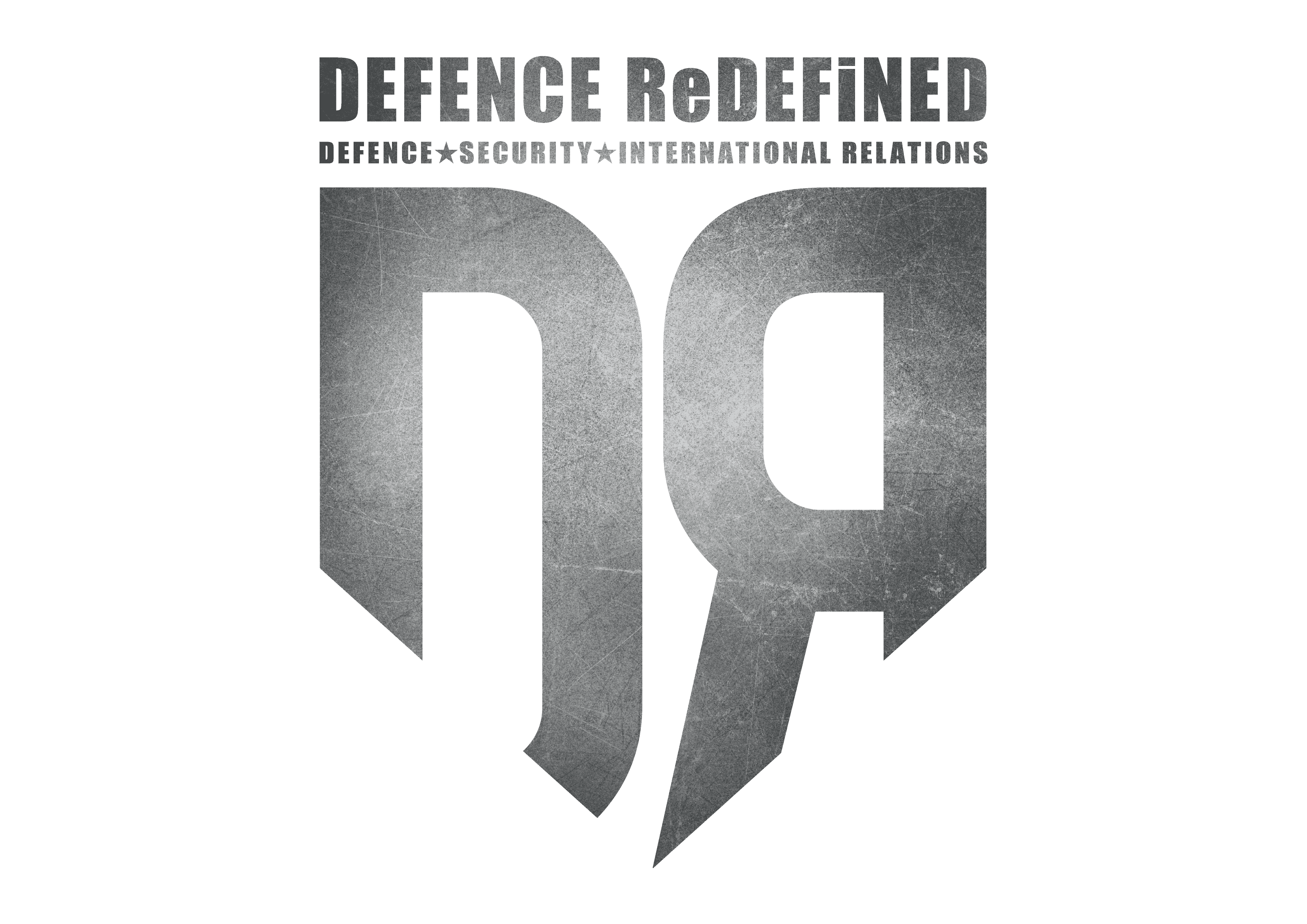MEVACO S.A. announced to the investing public that it has entered into three new agreements with the INTRACOM DEFENSE S.A. for the manufacture…

The Hellenic Centre for Defence Innovation (ELKAK) aims to foster the domestic defence innovation ecosystem while supporting start-ups, innovative companies, research centres, and businesses active in the fields of defence, security, and civil protection, throughout the development cycle of their products and research programmes.
In this context, ELKAK seeks to map the capabilities and prospects of the Greek defence innovation ecosystem to ensure they are considered when assessing the operational requirements of the Armed Forces, Security Forces, and civil protection in Greece.
Through this initiative, ELKAK stays attuned to domestic technological developments and emerging dual-use technologies as they are developed and implemented by Greek companies, research institutions, and research centres. Simultaneously, its capacity to explore technological advancements in its areas of interest and identify investment opportunities is enhanced.
Also read: SEKPY | All gray areas in Ministry of National Defence bill for HCDI
Interested parties can find instructions and the required information at the end of this notice. This invitation is addressed to:
▪ Small- and medium-sized enterprises (SMEs) of any legal form, with an emphasis on:
- Start-ups: New enterprises in the initial phase of their development that aim for innovation and rapid growth.
- Scale-ups: Enterprises that have moved beyond the start-up phase, have overcome early survival challenges, and are now experiencing significant growth in production, customer base, or revenue.
▪ Research Centers and Institutions operating in Greece.
ELKAK seeks to map the potential and existing solutions of the domestic ecosystem in the following areas of interest:
- Platforms and Integrated Systems: Design, modification, equipment, and construction of vehicles and vessels using innovative materials, applications, and techniques to meet specific operational requirements. This also includes the phased development of a national shipbuilding programme.
- Unmanned Systems and Countermeasures: This category encompasses all unmanned programmes and their countermeasures, acknowledging the cross-category diffusion of technologies (e.g., autonomy, navigation, sensors). The integration of various technologies into unmanned systems serves to achieve optimal operational outcomes.
- Environmental Awareness, Surveillance, Command and Control (C2), Targeting: Innovations in this area range from environmental awareness to targeting, based on a consistent core operational logic. In the maritime environment, dual-use innovations present significant opportunities, while the inclusion of C2 facilitates strategic advantage by neutralising threats before deploying effectors. Artificial intelligence applications supporting these functions are also a key aspect of this sector.
- Weapons and Ammunition: This concerns all requirements for the development and support of ammunition and weapons with characteristics that provide an operational advantage. This sector also includes effectors regardless of the domain of reference (e.g., HP effectors).
- Propulsion and Energy Systems: This is an area of innovation with obvious benefits from dual use. Extending autonomy, reducing the cost of logistical support, and protecting against adverse events during operation are indicative of thematic areas of interest.
- Space Systems: Primarily concerns services that support the operational use of available satellite systems (e.g., communications and surveillance).
- Information Systems, Cyber Security, and Communications: Encompasses activities that enhance secure and reliable communications while ensuring cybersecurity.
- Logistics and Business Support: Given the critical importance of logistics in defence operations, significant potential exists for innovation in areas such as smart logistics solutions, maintenance process optimisation, and field-deployable support capabilities.
Also read: HCDI | Elite recruits in innovation roles in the Hellenic Armed Forces
- Critical Infrastructure Protection Systems: Hybrid threats underscore the need for effective protection of critical infrastructure. Innovation in prevention, detection, identification, and response measures can significantly improve security in this domain.
- Operational Organization, Doctrines Tactics: The adoption of innovative solutions requires the parallel development of operational tactics. Focused experimentation, advancements in simulation technology, and research in tactical and operational-level organisation are crucial for integrating innovations into real-world applications.
- Enhancing Resilience and Human Resource Management: Given current staffing challenges and demographic trends, optimising human resource efficiency is imperative. Research into training safety, effectiveness, and innovative organisational structures can yield high returns on investment. Additionally, advancements in biotechnology offer opportunities to enhance human performance.
- Sensors (Active-Passive): Sensors are crucial for timely detection, surveillance, and battlefield data analysis. They are categorised as:
- Active sensors, which emit signals (e.g., radar, sonar) and provide precise target data but may expose the sensor’s location.
- Passive sensors, which detect emissions (e.g., infrared cameras, radio frequencies) and enable covert surveillance and target identification.
In modern defence, sensors are integrated into drones, satellites, missile systems and electronic warfare platforms,improving decision-making and operational precision. AI and edge computing further enhance real-time sensor data analysis, providing strategic advantages.
Legal entities wishing to participate are invited to submit the requested information by Monday, 30 June 2025, via the: ELKAK-Ecosystem Directorate. The data collected will be used to develop targeted invitations for collaboration, supporting the needs of the Hellenic Armed Forces while contributing to the growth of the Greek economy.
Also read: Dendias | Changes to military service
READ MORE
Christodoulides meeting with NATO Secretary General – Defence among the priorities of the Cyprus EU Presidency
President Christodoulides informed Mr Rutte of the latest developments regarding the Cyprus issue, referring to EU-Turkey relations…
EFA GROUP | New Leadership for the Next Phase of Strategic Development and International Expansion
The defence industry conglomerate EFA GROUP continues its dynamic evolution into a unified and outward-looking ecosystem of defence and security…
GSOF Symposium Europe | The 9th iteration tο be held on 7 – 9 October 2025 in Greece
The 9th edition of GSOF Symposium Europe will take place from 7–9 October 2025 in Athens, Greece.
European Commission | New recommendation to European citizens to invest savings in defence
The European Commission has issued a recommendation proposing the widespread adoption of individual “savings and investment accounts”…
Helsing | Presentation of Europe’s First “Loyal Wingman” CA-1 Europa Equipped with Three AI Systems
The German defence company Helsing unveiled a new autonomous combat drone — the “CA-1 Europa” — marking its entry into the race to develop…
Mevaco | Three New Contracts with Intracom Defense
MEVACO S.A. announced to the investing public that it has entered into three new agreements with the INTRACOM DEFENSE S.A. for the manufacture…
DVD2025 | Aaronia Shows Mobile C-UAS System AARTOS Mounted on Zetros 6×6
The rise of drone warfare and the growing importance of electronic warfare were central themes at DroneVation & Defence 2025 in Vienna.
The 4th Belharra Frigate was approved by an increased majority in the Greek parliament
With an increased majority of 243 votes in favour, 45 against and 4 abstentions, out of 292 MPs present, Article 1 of the bill – which contained the draft of the main agreement…







